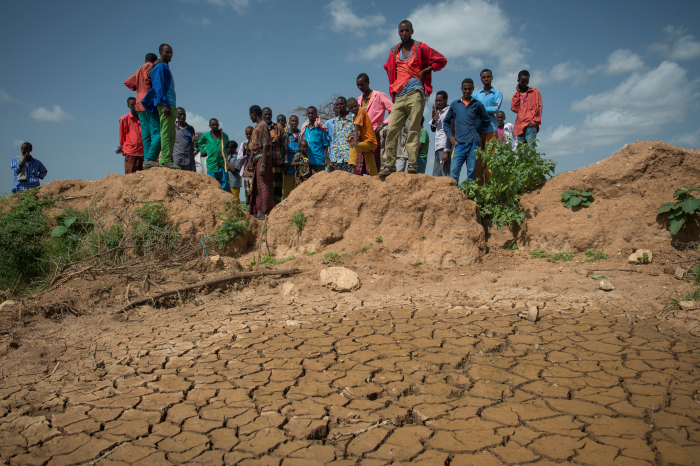
It is less than nine years until the Paris Agreement and the UN Sustainability Goals must be met. We are now in what must be the decade of action!

NCA is cheering on ambitious and energetic politicians who take the world's crises seriously. We have three demands for the new Norwegian Government in the areas of climate finance, tax justice and development aid. These are three demands that can make a crucial difference for the world's poorest.
The new government must step up Norway's climate financing in line with a fair share of responsibility. The Paris Agreement obliges all countries to contribute to solving the climate crisis based on historical responsibility and economic capacity. Norway scores high on both and must therefore step up its climate financing considerably. Climate finance plays a crucial role in achieving the Paris Agreement because it enables all countries to increase their climate ambitions, including developing countries. Norway, together with other rich countries, is committed to increase climate financing drastically. Without access to stable climate financing for many years to come, the world will not achieve the goals of the Paris Agreement to limit global warming and adapt to climate change.
In order for Norway to be able to increase climate financing in line with our obligations and a fair share of responsibility, a comprehensive plan must be prepared for financing to escalate, which also looks at innovative sources of financing. Financing for climate adaptation must be a priority, with a focus on small-scale projects in the least developed countries that contribute to strengthening local food security and reducing inequality and poverty. Climate financing must be arranged based on the developing countries' own climate plans and development needs.
We would like to emphasize that there are heavy reasons for increasing climate financing in addition to an aid budget of 1 per cent of GNI. It is the poorest countries that are hit first and hardest by climate change, a crisis they have to a small extent contributed to create. When the world community must increase climate funding in the future, it is very important that investment in such a global common good is not made at the expense of other important areas such as health, education, and support for human rights organizations.
In this report, NCA and Vista Analysis provide 10 suggestions on how climate finance can be funded.
We are pleased that both the Centre Party (Sp) and the Labour Party (Ap) in their programs are committed to working for better international tax rules. The Labour Party's program states that Norway shall work for an international convention on economic transparency, which is also recommended by the UN's high-level panel FACTI. We believe this is a very good suggestion. Long-term global problems require long-term global solutions. To lead in this work internationally requires courage, ingenuity, and a long-term effort. But the world does not move forward without someone leading the way, even in a complicated area such as international tax rules.
Tax evasion and avoidance are among the biggest threats against the country's ability to provide welfare to their population. Today's international tax rules are complicated and provide great opportunities for multinational companies to move profits from high-tax countries to low-tax countries. This is particularly affecting developing countries, which are missing out on large sums of money that should have been available to deal with the crises these countries are facing.
The time is ripe to put in place an effective tax system that is adapted to a modern economy and that works well for all countries, including developing countries. Financial transparency and strong international cooperation are crucial to succeed in this.
NCA is working with more than 30 organizations to demand that Norway take the lead in a global tax convention.
NCA urges that the obligation to provide at least one percent of GNI in development aid must be included in a new government platform. We also urge that continued assistance has poverty reduction as its main purpose and efforts must be directed at the most vulnerable.
The post of Minister for Development must be continued to ensure that a coherent policy for development is prioritized in the Government's work and for Norway to be able to take international leadership in the field of development. A Minister for Development should not only manage the development aid budget, he or she should also devote much of their time to change the cause of poverty and injustice and launching initiatives that can mobilize far larger sums than development aid budgets.
As a result of the climate crisis, conflicts and the pandemic, the need for both long-term and humanitarian aid is increasing. At the same time, the room for manoeuvre for civil society is declining in more and more countries, and attacks on help workers are increasing. The development aid must help ensure a strong civil society such as the human rights advocates, hold the authorities accountable, and build robust institutions and tax systems. We must focus on sustainable and robust food systems that increase access to nutritious food and at the same time protect the environment and climate. Humanitarian and long-term assistance must be better integrated, with a focus on crisis prevention. In vulnerable countries with a high level of conflict, it is important to work long-term and address the various causes of conflict. Local organizations, including women's rights organizations, should be given higher priority as partners.
Picture: Drought in Ethiopia. Photo by: Håvard Bjelland.
Published: